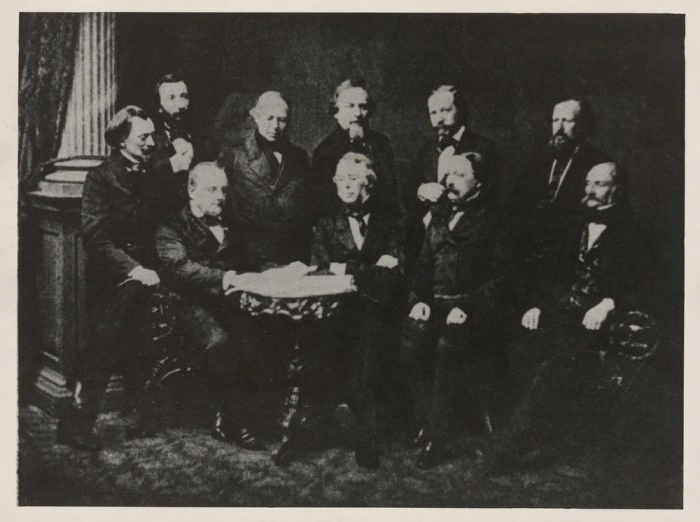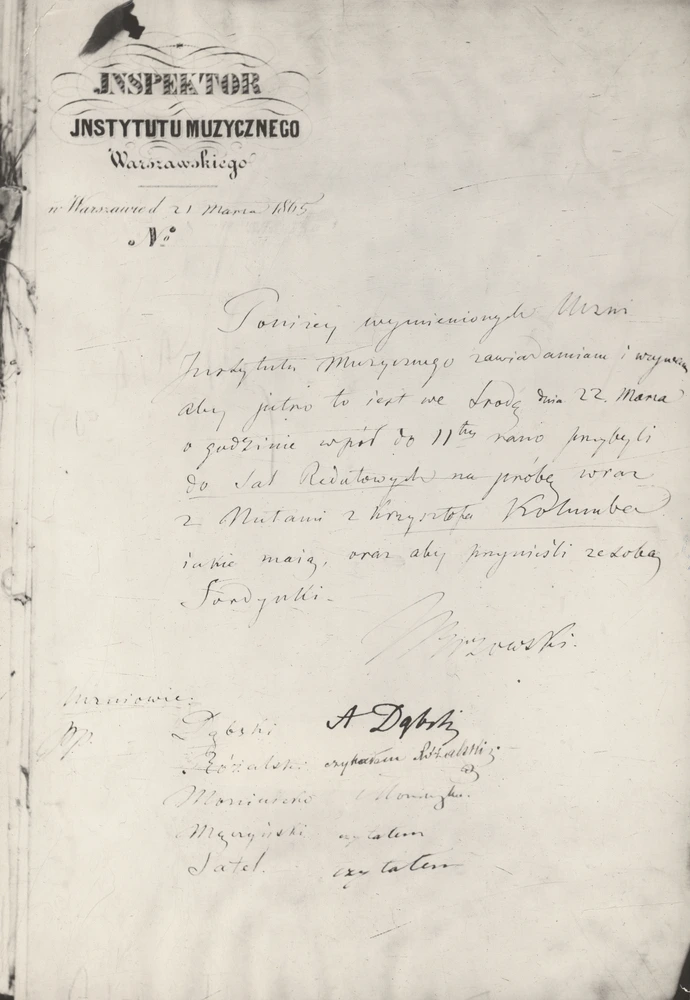On 1 October, all universities open their doors to students, including musical institutions. It is a great opportunity to mention the Music Academy in Warsaw, 19th-century predecessor of today’s Chopin University of Music. Founded in 1859 on the initiative of Apolinary Kątski, the Academy began operating under his direction in 1861. It took place 30 years after the Music School was closed as a result of Tsarist repressions caused by the November Uprising, and from then until the establishment of the Academy, Polish students of musical arts could only learn by taking private lessons. Kątski’s Academy occupied the building of the Ostrogski Palace, which currently houses the Fryderyk Chopin Museum.
Among the Academy’s lecturers, there was Stanisław Moniuszko, who took over choir class in 1864 and was nominated as a teacher of harmony and counterpoint in 1866. In the collections of the Polish Music Library, one can find a confirmation of this nomination by the headteacher Kątski. Sometimes the work of the lecturer clashed with Moniuszko’s duties as a conductor and director of the opera at the Teatr Wielki, which was documented by him. On 17 November 1871, the author of Paria wrote a letter to the inspector of the Institute, Józef Brzowski, in which he justified his absence from classes with rehearsals at the opera, at the same time offering to conduct lessons during the holiday season as compensation.
Another obstacle to maintaining the continuity of teaching was Moniuszko’s frequent trips, which ultimately led to conflicts with Kątski. Despite this, the author of Halka continued to cooperate with the Institute (with a break of several months), as much because of his sense of pedagogical mission as because of the high teaching salary of 700 roubles, as indicated by the payroll preserved in our collections.
In 1871, Moniuszko collected his pedagogical experience in the innovative Pamiętnik do nauki harmonii. He was associated with teaching until his death (1872), and his most outstanding students included Zygmunt Noskowski, Antoni Stolpe (junior), Władysław Rzepka and Antoni Wincenty Rutkowski.

A collective photograph presenting the founders and professors of the Institute of Music in Warsaw, taken in 1861-1872.

A letter written by Józef Brzowski, the Inspector of the Warsaw Music Institute, written on 21.03.1865.